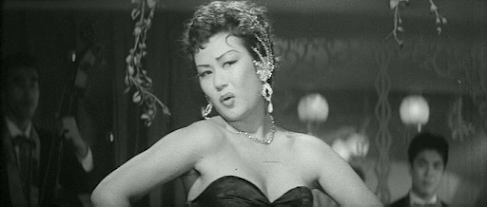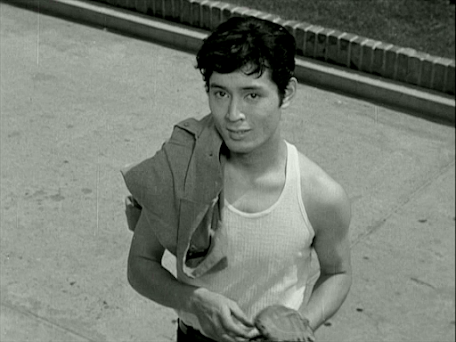Obscure Japanese Film #84
 |
| Shigeru Amachi |
1941: Military policeman Lt Namishima (Shigeru Amachi) is extremely miffed when Akiko (Nahoko Kubo), the woman he fancies, marries Corporal Tazawa (Shoji Nakayama). Later, when a subordinate loses some classified documents, Namishima decides to take the old maxim of ‘all’s fair in love and war’ a little too literally and frame Tazawa in order to get his hands on his wife. Tazawa receives the death sentence as a traitor and is shot by firing squad, but not before he has placed a curse on Namishima, vowing to get revenge from beyond the grave. However, the dastardly lieutenant continues unabashed with his evil scheme – until Tazawa’s brother becomes an MP and begins investigating his brother’s death…
 |
| Shoji Nakayama and Nahoko Kubo |
This Shintoho production was ordered by producer Mitsugu Okura, who assigned director Nobuo Nakagawa to come up with a new film to cash in on the (presumably modest) box office success of the previous year’s The Military Policeman and the Dismembered Beauty. Like that picture, this also features actors Shoji Nakayama and Shigeru Amachi, but here they play different characters and the story is unrelated. The earlier film had been directed by Kyotaro Namiki, who seemed not to be terribly at home in the horror genre, so the choice of Nakagawa – who had already enjoyed success with several such films – makes perfect sense.
 |
| Shoji Nakayama contemplates the work of some over-enthusiastic gravediggers |
Surprisingly, Japanese Wikipedia suggests that Nakagawa originally developed a straightforward thriller with screenwriter Yoshihiro Ishikawa and the supernatural element was added later at Okura’s insistence, and it does feel like something of an afterthought, most of the (fairly mild) spooky stuff being held back for the climax. In any case, Nakagawa’s film is much superior to the previous one. He and cinematographer Tadashi Nishimoto were able to make use of the new widescreen format and clearly went to considerable trouble in shooting scenes from unusual angles, making this an often visually arresting piece of work, even if they occasionally get a bit too carried away with tilting the camera this way and that.
 |
| Shigeru Amachi |
The film is unusual in featuring a villain as the main character, and it’s Shigeru Amachi in this role who gives the strongest performance, although he gets stiff competition from Yoko Mihara as the bad girl of the piece. It’s also fun to see Masayo Banri as a sexy nightclub dancer, but perhaps best of all is an absolutely priceless moment of (possibly unintentional) black comedy involving a corpse disposal.
 |
| Yoko Mihara |
 |
| Masayo Banri |


















